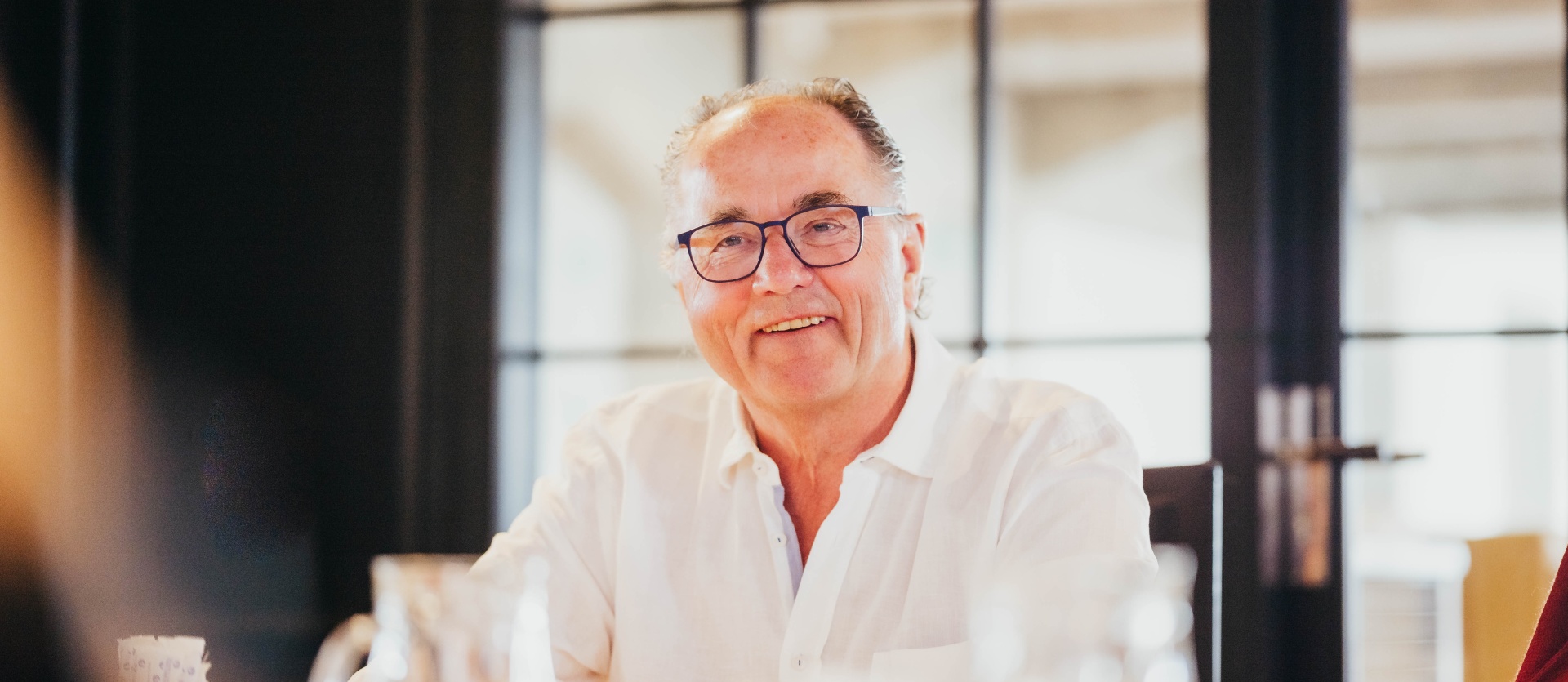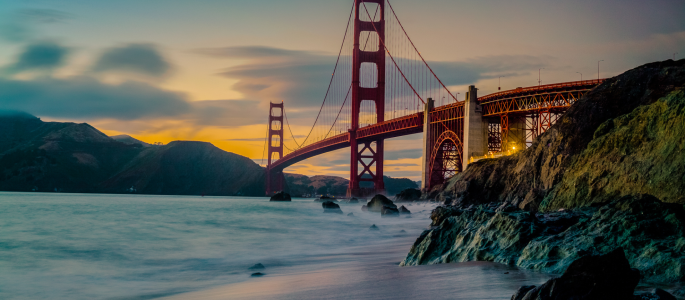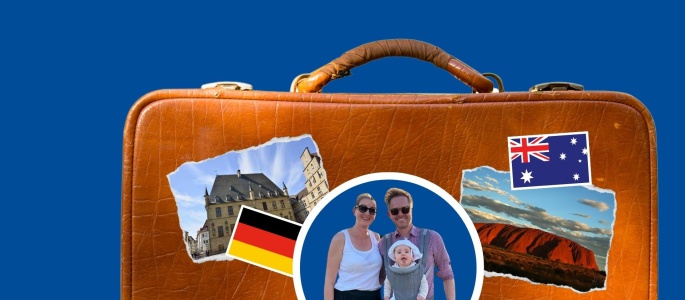
Klaus Hellmann: "If you're good at what you do, you’ll grow automatically"
Mr. Hellmann, what does the 150th anniversary of our/your company mean to you personally?
For me, it means being part of a chain that started 150 years ago and will hopefully only end in the distant future. When you grow up in this kind of company and at the same time in a family like mine, you do everything for the company. That's what family businesses are all about, and why some family businesses grow old.
I grew up after World War II and saw firsthand the incredible efforts but also my father's commitment to the company, and especially to its employees. A company is not just about the company, it's about people. Thus, it's important to work tirelessly to bring the company from generation to generation. In a way, we as shareholders are just trustees.
You took on a leadership position in 1976, at the age of 27. Was it a burden for you to take on so much responsibility this early in your career?
I was the only one in the family who knew that my father was going to die. I found out when I was studying at the DAV (German Foreign Trade and Transport Academy) in Bremen. I was faced with the question: “Do you leave your studies behind and go into the business, or do you go through with them?” I decided on the latter.
When he fell ill, my father – although he was always an optimist and the business was doing well - feared that the company would have to declare bankruptcy. In addition, his personal assistant and HR manager at the time, Anne Brandt, passed away suddenly in 1976. The entire situation posed a great challenge for me, especially since I had zero management experience.
Why did the company survive me anyway? Quite simply, because we had people like Friedrich Ihnow, Herbert Kuhlmann, Oskar Strache, Helmut Hischemöller, Karl Klages, my uncle Jochen Hellmann and many more that dedicated almost their entire lives to the company – highlighting a level of determination of its people which was always the great force that defined Hellmann for generations. Friedrich Ihnow became a sort of father figure and trusted advisor to me. Those times were tough, but they taught me excellent lessons. Early on, the people around me let me make important decisions, and it seems those decisions weren’t that bad for the company.
Did you have any moments where you wanted to quit in the face of such great responsibility?
In school, I always stood out everywhere ... I had my "most successful" year in the seventh grade: four F's in the four main subjects and 54 entries in the grade book. After that, I was allowed to "quit" school and had to transfer to boarding school. However, I am a very ambitious person by nature and always wanted to be at the top. Even during my childhood, I helped with furniture transports, in the workshop and the warehouse, or sat with the coachmen on the horse-drawn wagons. The company has always been part of my life.
You mentioned Mr. Ihnow's fatherly advice; what was the most important advice you have ever received in your life and who gave the advice?
The values my parents instilled in me have been the most important life lesson. They taught me, for exampl, to never ask something of others that you are not willing to do yourself. And to have respect for all people, to take all people equally seriously, no matter what their background may be.
What was the most difficult decision you made or had to make later on in your career?
There's no simple answer to that. One of the most difficult decisions was certainly selling the DPD - after all, you are not just selling the company, you are also selling the employees. And yet it felt easy - why? With seven private partner companies, we had three supervisory board seats at the time and the French postal service had two, so we were able to remain in control of the DPD. If only one partner had sold, the French would have had three seats. We really had no alternative and that's why the seven of us quickly decided to sell. Anyone who knows me knows how difficult such a decision is for me, but I was able to make it within a day.
In retrospect, is this decision something you regret today?
No. If you are convinced of a decision, then it is also the right one, even if you might later see, "Wow, but now the business is growing." The "what if" discussion leads you nowhere.
Apart from the sale of the DPD, Hellmann has massively grown over the last 45 years under the leadership of you and Jost Hellmann from a regional freight forwarder to a global player...
Not quite – it wasn’t just my leadership. It was everyone working together. I was simply able to be a part of it.
How did you experience this growth?
By simply witnessing it - perhaps an example at this point: Around 2010, I spoke with an employee in Xiamen, China, who was 25 or 26 years old at the time. I wanted to know from her how she had experienced the massive changes that had taken place in China since the mid-1990s, with the growth of the cities and the emergence of the skyscrapers. She was baffled by the question, because all of this growth and development were a part of her daily life, and thus seemed much less exciting. When you look at it that way, the growth of the company doesn't seem as extraordinary as you might think.
Was it clear to you from the onset that you wanted to develop the forwarding company on a global scale? Was that level of expansion always your goal?
No, how could you plan or know that in advance? You have to continuously work on things and allow for changes. Take the warehouse IG West (in Osnabrück, Germany), for example: in 1978, we were offered a plot of land there measuring 150,000 m² for DM 13.50 (EUR 6.75) per square meter. We looked at it and saw an opportunity to build a contract logistics site there, so we bought it. The company was always looking to grow, but the goal was never just expanding. We always had the goal of being good at what we do. And when you're good at what you do, you’ll grow automatically.
You are considered an avid family man. Is the Hellmann FAMILY an extension of your own family for you?
Yes!
How do you express this?
Through responsibility. It's very simple! When someone comes to me and says, "Give me a hand," I don’t think twice about it. I don't question, but support where I can. Once an employee from the warehouse came to me and said, "You know, I have an injured leg, that's the reason why I can't work as often anymore." I thought it speaks volumes, that our employees have so much confidence in opening up and coming to me. That's what Hellmann has always been about. Of course, today that's not so easy considering the scale we're operating in.
Is that one of the reasons you came up with the F.A.M.I.L.Y DNA - to capture your set of values for the company and pass it on?
Yes, of course, and it has always been our interest to pass these values on. The F.A.M.I.L.Y DNA should continue to shape Hellmann for a long time to come.
Just as your name stands for family, it also stands for sustainability. Why is this topic so important to you, especially in its ecological sense?
When I was still smoking - that must have been between 1974 and 1976 - I threw an empty pack of cigarettes out of the window and emptied the ashtray on the street. My wife asked: “Klaus, what are you doing?” That's when I started asking myself questions. The realization hit me: We all live on one planet and are responsible for how we leave it behind for the next generation.
I remember how one plot after the other was bought up on the Elbestraße in Osnabrück. We paved, poured concrete, and sealed areas everywhere until it became clear to us what a concrete jungle we were producing. We then started to tear up the areas that weren't being driven on and gradually greened our grounds, always in many small steps. For me, that's sustainability in action.
You are considered by many to be a visionary or thought leader in the logistics industry, especially when it comes to digitalization or the concept of "New Working Worlds," which we have been bringing to life here in Speicher III, our company headquarters, since 2008. Where do you find this innovative energy and the drive to (help) shape the future?
Never accepting the status quo! I think that's my most important driving force. I'm constantly thinking about issues and am asking myself: How can we make things even better? Now, I'm not an early riser, but I usually get up at 6:00 a.m. to be able to move a lot of things along during the day. In the mornings, I go for a swim - in the past, I did 2 km, today it’s only 1.5 km – and, during that time, I let my thoughts run free. This ongoing thought process is my driving force for change.
Does this attitude also keep you young?
I certainly don't feel as old as I am. However, I've been constantly thinking about improvements my whole life. I remember working as an intern at a bank after graduating from high school. What kind of tasks do you think I performed as an intern? I had to file account statements all day - how boring! But I enjoyed it because I tried to get faster and better every day.
Ever since you joined our management team, you've attached great importance to effective and good cooperation with the Works Council. Why was that so important to you?
That is something else I inherited to some extent from my father. In 1953, when the Works Constitution Act came into force, Ferdinand Lintemeyer was the first works council chairman. He was a strong unionist and could be quite aggressive at times, but he always looked after the good of the company. After all, representing union interests is one thing, but it must not be used to damage the company. Whenever there were differences with my father, which of course there were, my father would visit Ferdi Lintemeyer in his garden on Saturdays to sort them out. You should never let communications break down and always meet each other at eye level, that's what I learned early on at home. And that's why I've carried this mantra with me over the years. When you've known each other for decades and have never lied to each other, a close and trustful relationship develops naturally.
Let's look into the future: What has to happen for the company to survive another 150 years or more?
Basically, we as a company are part of nature. Here's a good example: We've got an English oak tree in IG West that is almost 1200 years old. And companies are exposed to external circumstances, just like the English oak - so if you don't pay attention to certain things like the values we've been talking about, or if you don't recognize the signs of the market, then individual areas can suddenly become deficient and die, just like the tree. You always have to be mindful and adapt to changes to be able to grow old.
What have been the biggest highlights for you in the last 45 years?
For me, the highlight is the continuous development forward with the many friends I have made through the company, with employees and colleagues in the logistics industry. I would not be the person I am today had I not worked in this company. I take great pleasure in what we have created together throughout all these years.
How do you see yourself: A visionary or a rebel?
First of all, others have to make that judgment about me, it’s hard for me to say where I fall. You always see yourself in the wrong light, or at least in a different one. I am someone who works on things consistently. Even now that I am outside the company, I do a lot of things and develop companies. I just enjoy doing that, and I will probably never stop. Entrepreneurship seems to be ingrained in me.
Going back to the beginning: Would it be an accurate statement to say you see yourself as part of a "family dynasty," passing the baton from generation to generation?
I agree with the latter, of course, but I don't like the term "family dynasty." I still see my responsibility today as accompanying the company and the employees and addressing things that I don’t see as quite right. I will not relinquish that responsibility until I close my eyes. Until then, my wish is that we as a company grow as old as the English oak. So don't let up, and keep going!




